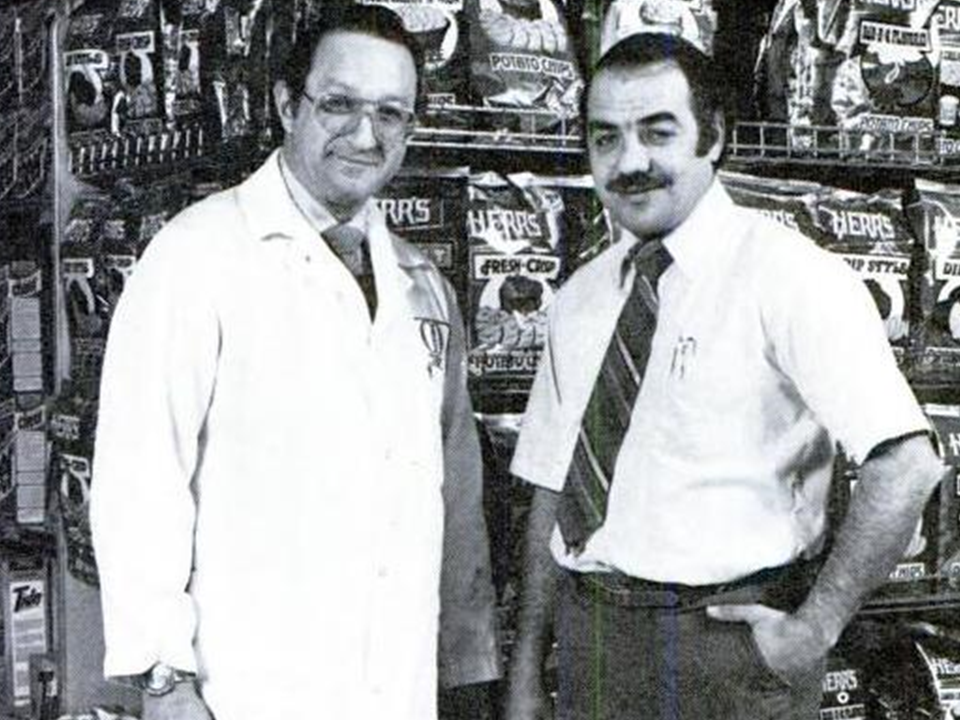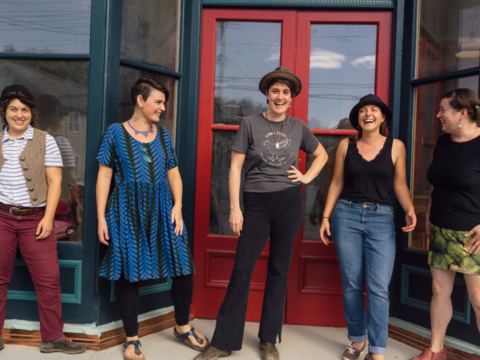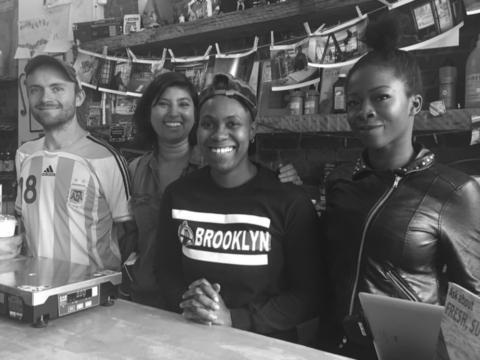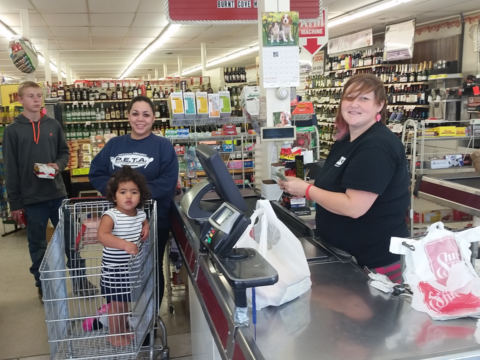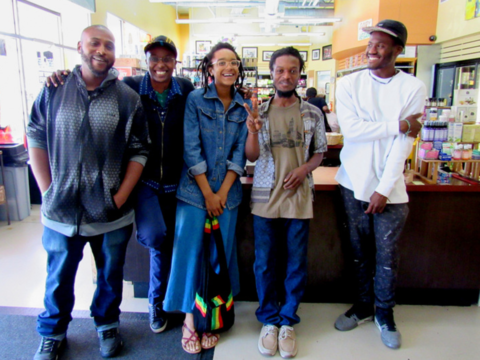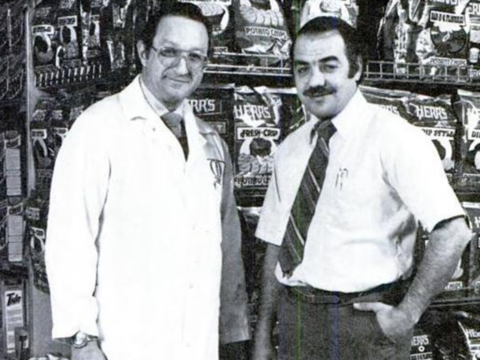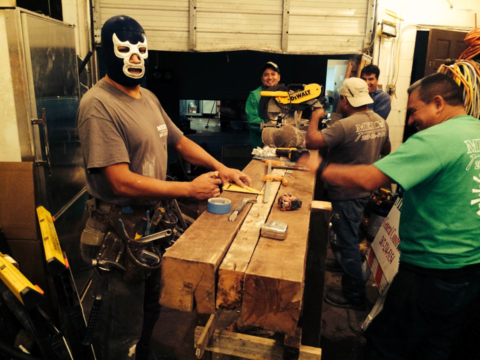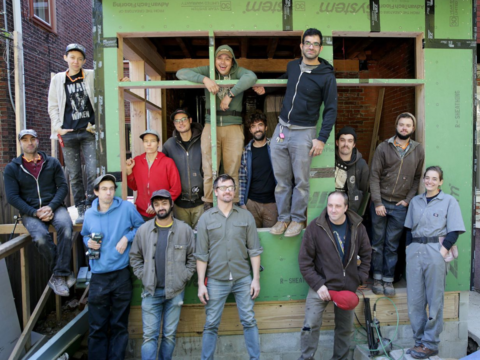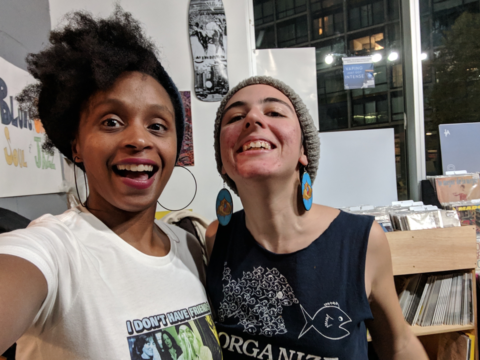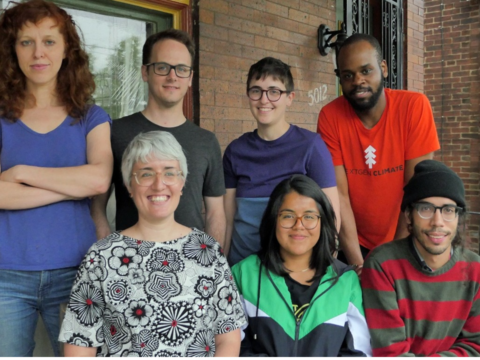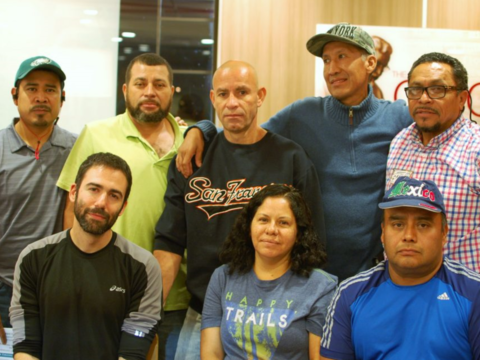This business has closed.
Industry: Grocery
Location: Philadelphia, Pennsylvania
Number of employees: 700
Became employee owned: 1982
Summary
The O&O Supermarkets were a series of worker cooperatives in the Philadelphia area in the 1980s. The United Food and Commercial Workers (UFCW) Local 1357, in partnership with Philadelphia Area Cooperative Enterprise (PACE), organized the first two stores in 1982 as part of a negotiation to keep the stores from being shut down by A&P. Three other buy-outs followed, and one supermarket was started from scratch with city support. At peak in 1987, there were six stores, and more than 700 workers participating in cooperative education programs. However, all but one store closed by 1989, and the remaining store had diluted its owner-to-employee ratio significantly.
Innovations
The UFCW and PACE, supported by the Ford Foundation, made several path-building innovations to U.S. cooperative development.
The O&O Investment Fund was created to support development and technical assistance for the store. The union had negotiated the reopening of several A&Ps under their subsidiary Superfresh brand and in doing so had written in contributions to the investment fund based on percentage of gross sales at those stores. Income to the fund, however, was instable. Union members’ interest in contributing to the fund dwindled once their jobs were saved as workers viewed the fund as diminishing their wages. The union was forced to decrease the contribution percentage, then make it a voluntary contribution, at which point the projected income to the fund shrank from $500,000 to under $50,000. At this point the fund merged with PACE.
The educational program of PACE (aka PACE of Philadelphia) was also path-building. Formed in 1976 as the Delaware Valley Federation for Economic Democracy, a chapter of the short-lived Federation for Economic Democracy, PACE was given several responsibilities that have become familiar territory for technical assistance organizations – feasibility studies, organizational and legal structure, loans and capitalization planning, and advocacy. Their worker education program was unprecedented in scale. PACE trained more than 700 worker owners in the transition for A&P to O&O.
The participation of the union in organizing cooperatives was itself a hopeful development. The UFCW local 46 had helped to organize an employee stock ownership plan (ESOP) for The Rath Packing Company in 1980, so it was familiar with employee ownership, but the leadership of union leader Wendell Young and the negotiation of contributions to an investment fund was visionary. Young’s faith in ESOPs as meaningful structure for workers was low, and he desired to form cooperatives.
The new stores Initially performed better than A&P, successes that have been attributed to having fewer supervisors, less shrinkage from worker theft, flexible jobs, reinvestment in modernization, and temporary pay cuts. However the stores also had challenges.
The stores
The Parkwood Manor O&O, open from 1982 through at least 1996 had good management and business. From a cooperative perspective, however, this store suffered from member dilution: the founding 24 members hired just as many employees and did not offer them membership. Though their success was due in part to developers’ cooperative values, and though the bylaws had been written to promote general membership of all workers, neither the union or PACE had any way to enforce this original intent.
The Roslyn O&O, open from 1982 and sold in 1989, was financially successful until 1987 when it suffered from competition with new, more modernized stores. The store had also bought a second location in Lambertville, New Jersey and both were unable to compete.
In search for a way to ensure universal membership the next three stores were organized with ESOPs which made workers owners after 60 days.
The Strawberry Mansion O&O was a new store built from scratch in 1985 as the anchor of a city development project in a low-income neighborhood. The store opened with fanfare, but also struggled. A conflict emerged when the the city mandated that half of the workers be hired through a neighborhood group, and gave the chairperson of that group a permanent position on store’s board. PACE withdrew from this project when their recommendations for personnel changes were ignored by the board.
The Darby O&O and Upper Darby O&O, the last buy-outs, were only open for two or three years. Sales were low, there was little capital for modernization, and management could not find a way past these problems.
Structural considerations
The loss of Income to the O&O Investment fund hampered the network’s development. In the original negotiation, the Superfresh stores would put aside 1% of revenue for the union – 60% of that would go to worker merit bonuses, and 40% to the investment fund. Before long, the meat cutters voted that they wouldn’t share the 40%, and the clerks sued the union to make it voluntary, effectively divesting from the fund. In renegotiating the Superfresh contracts in 1985, the union organized fund income to be a contribution of the employer, rather than the workers, to avoid this conflict.
The member dilution problem at Parkwood Manor left the union and PACE without any recourse to enforce their original intent. Legally structuring the next three developments as democratic firms with ESOPs responded to that problem.
The stores also had the challenge, like so many other cooperative buy-outs of closing plants, to be in an industry with rapid modernization and thin margins.
Learn more
- DAWI – Worker Cooperative History: the O&O Supermarkets (2018)
- Lindenfeld – The O&O Supermarkets: Achievements and Lessons. In When Workers Decide. (1992)
- Lamas – PACE of Philadelphia. In When Workers Decide. (1992)
- Dickstein – The Role of Cooperative Development Agencies in Developing Worker Cooperatives (1988)
- Hochner – Job-Saving Strategies, Worker Buyouts and QWL (1988)
- Rosen – Producer Cooperatives, Education and the Dialectical Logic of Organization (1987)
- Kreiner – Worker Ownership as the Basis for an Integrated Proactive Development Model (1987)
- Whyte – Philadelphia Story (1986)
- Sanders – A&P Super Co-ops (1983)
- Egerton – Workers Take Over the Store (1983)
- Clark and Guben – Future Bread: How Retail Workers Ransomed Their Jobs and Lives (1983)
